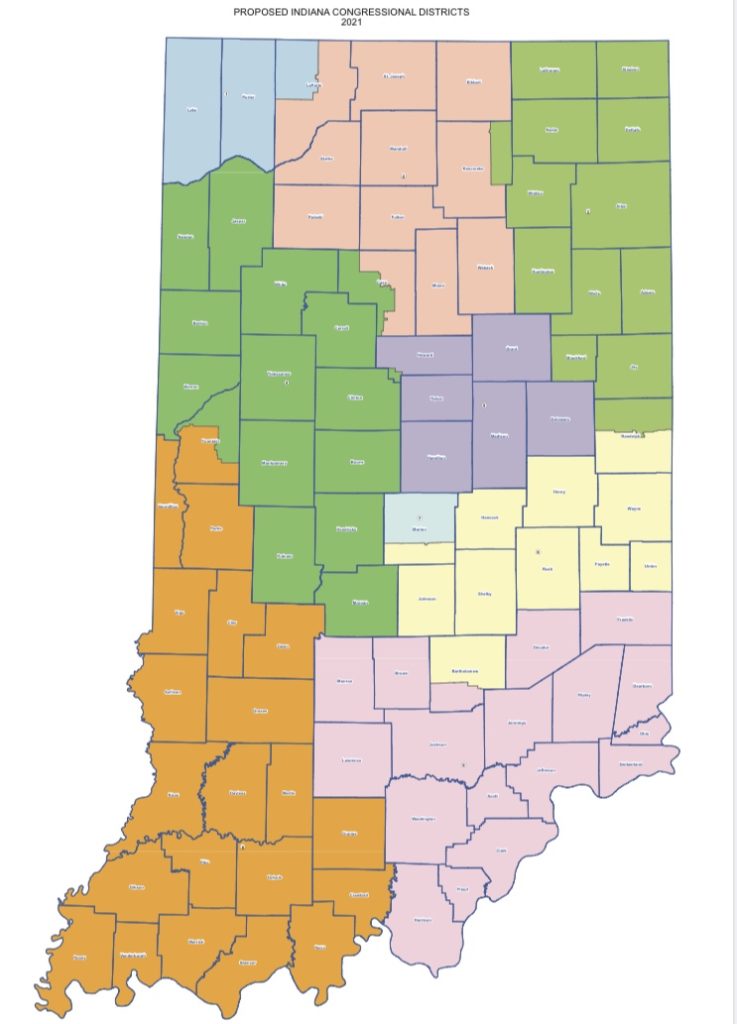For several years, I taught college courses at IUPUI. The most important day of the semester is the first one, when the professor distributes the syllabus and explains the parameters for the course.
I always tried to make it clear what we would be doing week after week, and importantly, the criteria by which students would be graded. Although the contents of assignments and discussions would be a surprise, the intentions were well defined.
But that’s not at all what happens when legislators draw maps. Because yesterday, a committee at the Indiana statehouse released their proposed maps for state and federal offices, and they are…frustratingly vague.

Yeah, sure, you can click through to get a bit more detail [1], but these outlines on voting districts don’t tell you the important bits, such as income, age, and race distribution. Nor do we have the original computer files that were used to create these maps, since those haven’t been released either.
Really, all we know is that these outlines look a slightly bit different than the current outlines. And the current outlines have been widely described as partisan and unfair. Also there are only going to be three public hearings on the new maps. One was the day after they were released. One is the day after that. The final vote is a few weeks away.
If you’re getting the sense that very little about this process is democratic, you’re absolutely right. The lawmakers are, as the expression goes, picking their constituents. The nine congressional districts are likely to have the same balance of Republicans and Democrats that they have had for nearly a decade.
That’s why I am running for Congress. Because it shouldn’t be more of the same. We should all know what the parameters in advance.
Voters should choose their representatives, not the other way around.
[1] Because they are the party in power and drawing lines is partisan, the maps are on https://www.indianahouserepublicans.com










